Missing (1982): the wrong place at the wrong time | el lugar equivocado en el momento equivocado

Reviewing the last movies I had seen and looking at my list of pending movies, I realized that I hadn't seen a movie from the 80s in a while. I grew up in the 90s, early 2000s and most of the stories I see are from that era or later. And although I also like classics and movies from any era, it has been a while since I visited the decade that gave us Blade Runner, Back to the Future and many other classics.
Revisando las últimas películas que había visto y viendo mi lista de películas pendientes me di cuenta de que tenía tiempo sin ver una cinta de los años ochenta. Crecí en los noventa, principios del dos mil y la mayoría de las historias que veo son de esa época o posteriores. Y aunque me gustan también los clásicos y las películas de cualquier época hacía tiempo que no visitaba la década que nos dejó Blade Runner, Back to the Future y muchos otros clásicos.
Among those I had pending, one name jumped out: Missing. I had seen the title of this movie on lists like Best Disappearance Movies, Best Movies of the '80s, Best Political Dramas and things like that, but I had never bothered to find out what the story was about and I think that life is really responsible for choosing the best moment for our experiences because if I had seen it five years ago I would not have assimilated it in the same way. Missing is directed by Costa-Gravas, a Franco-Greek film director responsible for great films such as Music Box, Z and Amen; and starring Jack Lemmon, Sissy Spacek and John Shea. The script is by Donald E. Stewart together with the director himself, who were based on the book The Execution of Charles Horman: An American Sacrifice by Thomas Hauser in which the author tells the true story of Charles Horman, a young American murdered by the Chilean authorities in the first days after the coup of '73 led by Augusto Pinochet against the president Salvador Allende. Wait, Chile? The coup in an American film from the early eighties? I was a little surprised because I wasn't expecting it, but I was even more surprised by Charlie's story in the movie and some disturbing facts that I found difficult to believe, but which I was later able to corroborate were real facts.
De entre las que tenía pendiente, un nombre saltó a la vista: Missing. Había visto el título de esta película en listas como Mejores películas de desapariciones, Mejores películas de lo años ochenta, Mejores dramas políticos y cosas por el estilo, pero nunca me había tomado la molestia de averiguar de qué se trataba la historia y creo que en verdad la vida se encarga de escoger el mejor momento para nuestras experiencias porque si la hubiera visto hace cinco años no la habría asimilado de la misma forma. Missing está dirigida por Costa-Gravas, director de cine franco-griego responsable de grandes películas como Music Box, Z y Amen; y protagonizada por Jack Lemmon, Sissy Spacek y John Shea. El guión es de Donald E. Stewart junto al propio director, quienes se basaron en el libro The Execution of Charles Horman: An American Sacrifice de Thomas Hauser en el que se cuenta la historia real de Charles Horman, un joven norteamericano asesinado por las autoridades chilenas en los primeros días posteriores al golpe de estado del 73 liderado por Augusto Pinochet en contra del entonces presidente Salvador Allende. Un momento, ¿Chile? ¿el golpe de estado en una película norteamericana de principios de los años ochenta? Me sorprendió un poco porque no lo esperaba, pero me sorprendió aún más la historia de Charlie en la película y algunos datos perturbadores que me parecieron difíciles de creer, pero que luego pude corroborar que eran datos reales.
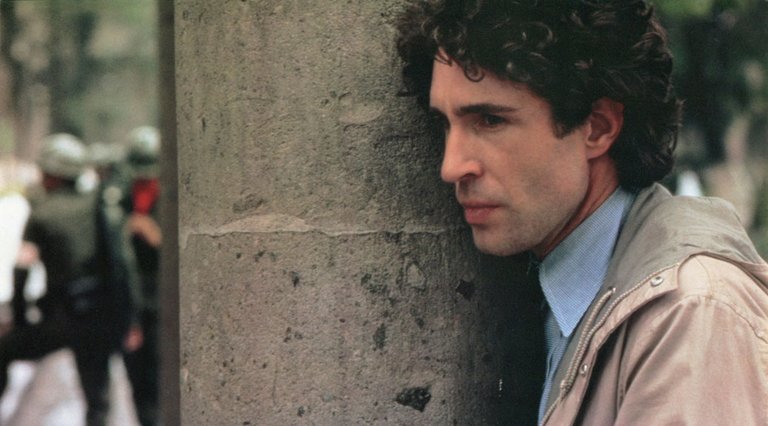
I will give some context without going into too much detail: after the Second World War and during the Cold War era, a radical ideological conflict was experienced in much of the world. On the one hand the "defenders of freedom" who supported the American way of life, capitalism and what was known as the right. On the other side were the revolutionaries, branded as rebellious who supported the ideas of communism, the Cuban revolution, and who were known as the left. Both clashed ideologically for decades, but some of those conflicts were not just words and many people died for belonging to one side or the other.
Daré algo de contexto sin extenderme mucho: después de la segunda guerra mundial y en la época de la guerra fría se vivió un conflicto ideológico radical en gran parte del mundo. De un lado los "defensores de la libertad" que apoyaban el estilo de vida americano, el capitalismo y lo que se conocía como la derecha. Del otro lado los revolucionarios, tildados de revoltosos que apoyaban las ideas del comunismo, la revolución cubana, y que se conocía como la izquierda. Ambos se enfrentaron ideológicamente durante décadas, pero algunos de esos conflictos no quedaron sólo en palabras y mucha gente murió por pertenecer a uno u otro lado.
Whenever a voice on one side got some attention, the other side tried to divert attention or simply silence that voice and to do this both sides had powerful allies, the main ones being the United States and the now defunct Soviet Union (U.S.S.R.). Today it is known that the North American government economically and militarily supported uprisings in Latin American countries that led leaders to take power by force and one of those cases was the Chile case. Clear and blunt: the US helped Pinochet carry out the coup against Salvador Allende. But we know that today, fifty years later. In the eighties, a decade after the coup, it was unthinkable that the country that defended freedom would intervene in the politics of another country, especially one so geographically distant. That is why, in the film, Charlie is struck by seeing so many soldiers and members of the North American navy in a hotel in Viña del Mar and begins to become suspicious. Charlie had the misfortune of seeing things and suspecting truths that he transmitted to those close to him and that is why he was arrested by the police. After not hearing from him for days, his father travels to Santiago to look for him and although he establishes contact with the ambassador, the consul, and other men with some power, he increasingly gets the impression that they are not very collaborative, of that they are hiding something from him, what are they hiding? Do they want to protect someone? and then, when he fears the worst, Charlie's father asks himself a question: would the Chilean authorities be capable of murdering an American citizen without the authorization of some American official? Or worse, have they authorized it?
Siempre que alguna voz de un bando conseguía algo de atención, el otro bando intentaba desviar la atención o simplemente silenciar esa voz y para ello ambos lados contaban con aliados poderosos, siendo los principales EEUU y la ya extinta Unión Soviética (U.R.S.S). Hoy día se sabe que el gobierno norteamericano apoyó económica y militarmente alzamientos en países latinoamericanos que llevaron a líderes a tomar el poder por la fuerza y uno de esos casos fue el caso Chile. Claro y sin rodeos: los EEUU ayudaron a Pinochet a darle el golpe de estado a Salvador Allende. Pero eso lo sabemos hoy, cincuenta años más tarde. En los años ochenta, una década después del golpe era impensable que el país que defendía la libertad interviniera en la política de otro país, sobre todo uno tan distante geográficamente. Por eso, en la película, a Charlie le llama la atención ver tantos militares y miembros de la marina norteamericana en un hotel en Viña del Mar y comienza a sospechar. Charlie tuvo la mala fortuna de ver cosas y de sospechar verdades que transmitió a sus allegados y por eso fue detenido por los carabineros. Luego de no saber de él durante días, su padre viaja hasta Santiago para buscarlo y aunque establece contacto con el embajador, el cónsul, y otros hombres con algo de poder, cada vez le da más la impresión de que no son muy colaborativos, de que le están ocultando algo, ¿qué esconden? ¿quieren proteger a alguien? y luego, cuando teme lo peor, el padre de Charlie se hace una pregunta: ¿serían capaces las autoridades chilenas de asesinar a un ciudadano norteamericano sin la autorización de algún oficial estadoounidense? o peor, ¿lo habrán autorizado?
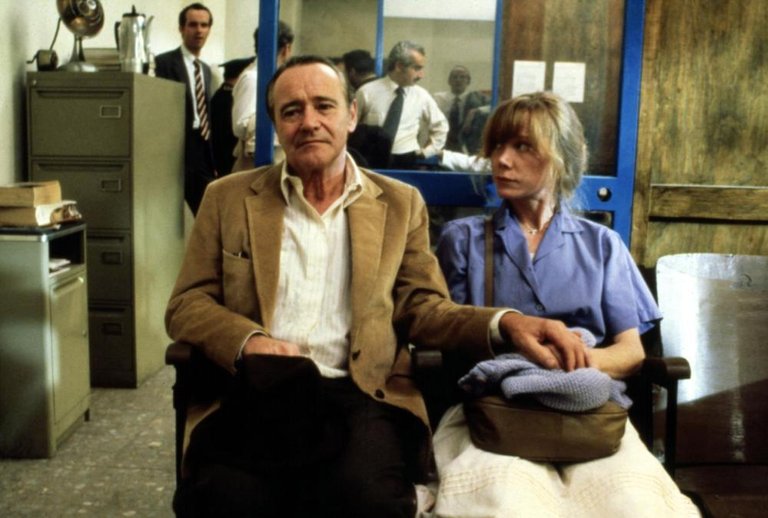
The search for his son becomes for the father (played in a great way by Lemmon) a Kafkaesque nightmare through a labyrinth of institutions, secrets and dead ends. In a tense climate in which corpses line the streets, flow down the river or crowd the morgue, there are gunfights in broad daylight and people can be taken prisoner anywhere and anytime, he and his daughter-in-law Beth feel every more and more restless. They understand that the local police are not cooperating (they may be involved in the disappearance), but the negligence (or something else?) of the American embassy and consulate baffles them. Charlie's father could not have known it, but decades later some documents were declassified that revealed that US authorities not only helped to plan and carry out the coup in Chile, but that they were involved in the murder of Charlie Horman because - using a well-known phrase - had seen many things. Obviously because of the subject it deals with and because until then it was nothing more than an insinuation of guilt and political and military intervention, the film was banned in Chile (in fact, it was filmed in Mexico) and in the United States and although it won multiple awards (including the Oscar for Best Adapted Screenplay) was withdrawn (along with the book) from the North American market and had to face different lawsuits that did not proceed after many years. The film was able to be distributed again by Universal Studios in 2006 (!), a time in which conspiracies and interventions in international politics seem normal to us, but the horror that the protagonists of this story must have experienced in those days never ceases to surprise and move us. Have any of you seen this movie? what do you think? I read you in the comments.
La búsqueda de su hijo se convierte para el padre (interpretado de gran forma por Lemmon) en una pesadilla kafkiana por un laberinto de instituciones, secretos y callejones sin salida. En un clima tenso en el que los cadáveres cubren las calles, bajan por el río o abarrotan la morgue, hay tiroteos a plena luz del día y las personas pueden ser tomadas prisioneras en cualquier lugar y momento, él y su nuera Beth se sienten cada vez más intranquilos. Entienden que la policía local no coopere (pueden estar implicados en la desaparición), pero la negliencia (¿o algo más?) de la embajada norteamericana y el consulado, lo desconcertan. El padre de Charlie no pudo saberlo, pero décadas más tarde se desclasificaron unos documentos que revelaron que efectivamente autoridades estadounidenses no sólo ayudaron a gestar y a dar el golpe de estado en Chile, sino que estuvieron implicados en el asesinato de Charlie Horman porque - usando una frase bien conocida - había visto muchas cosas. Obviamente por el tema que trata y por lo que hasta entonces no era más que una insinuación de culpabilidad y de intervención política y militar, la película fue prohibida en Chile (de hecho, se filmó en México) y en los EEUU y aunque ganó múltiples premios (incluyendo el Oscar a Mejor Guión Adaptado) fue retirada (junto con el libro) del mercado norteamericano y tuvo que enfrentarse a diferentes demandas que luego de muchos años no procedieron. La película pudo ser distribuida nuevamente por Universal Studios en el 2006 (!), una época en la que las conspiraciones e intervenciones en la política internacional nos parecen normales, pero no deja de sorprendernos y conmovernos el horror que debieron vivir los protagonistas de esta historia en esos días, ¿alguno de ustedes ha visto esta película? ¿qué opinan? Los leo en los comentarios.
Reviewed by | Reseñado por @cristiancaicedo
Other posts that may interest you | Otros posts que pueden interesarte:
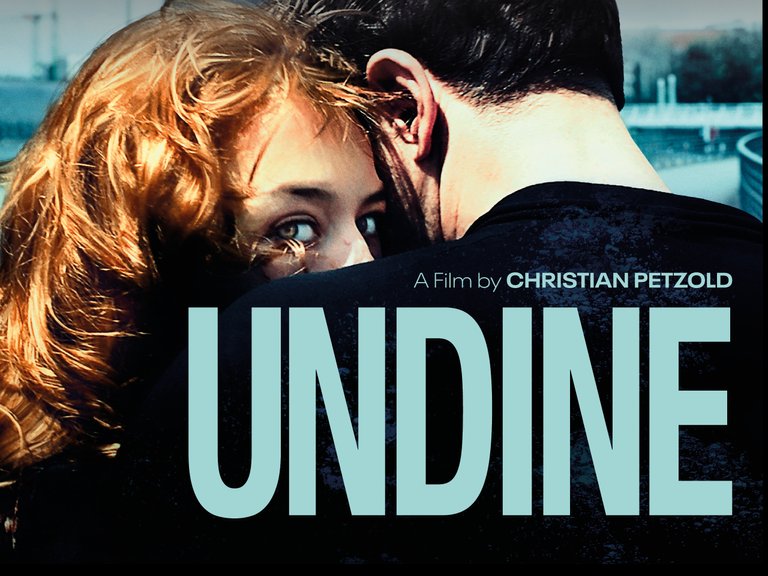  |
|---|
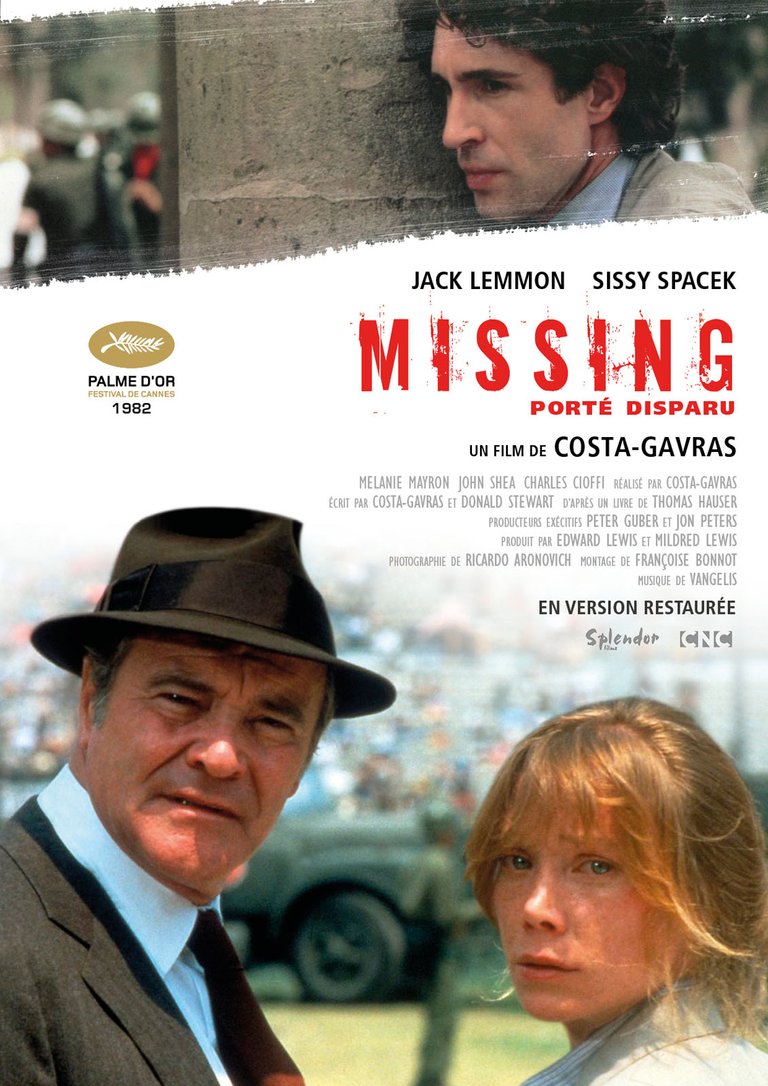
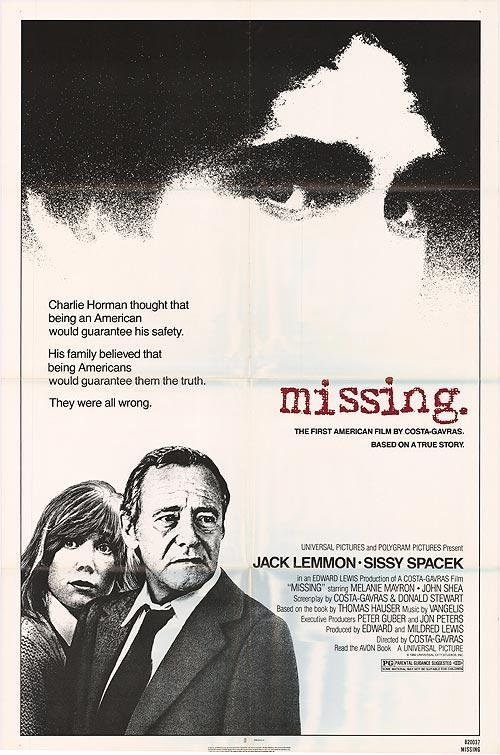

No la he visto pero me encantan estas historias llenas de realidades latinoamericanas y entender que 50 años desspués seguimos en la misma polaridad solo por conseguir el poder. Gracias por compartirla. La tendré en cuenta.
Gracias a ti por leerme y comentar.
Thanks for reviewing this important film. The CIA sponsored coup which brought the dictator Pinochet to power led to the deaths of tens of thousands of communists, socialists and trade unionists by the Chilean military. This shameful chapter in US foreign policy paved the way for ever more bloody interventions by the US across central America in the 1980s.
Sadly, the Hollywood of today would never make such a brave film which criticised American foreign policy.